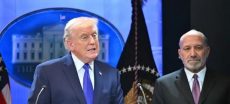Islamabad, May 31 — The State Bank of Pakistan (SBP) has clarified that virtual assets (VAs), including cryptocurrencies, have not been declared illegal in the country, despite widespread assumptions stemming from a 2018 advisory.
In an official press release, the central bank stated that its previous advisory — which directed banks, microfinance institutions, DFIs, EMIs, and other financial institutions to refrain from engaging in crypto-related transactions — was issued as a precautionary measure, not as a legal ban.
“The advisory was issued solely to protect our regulated entities and their customers, not because VAs were declared illegal,” the SBP emphasized.
The clarification comes after a recent briefing to the National Assembly’s Standing Committee on Finance, during which officials implied that cryptocurrency trading and holding remain illegal in Pakistan. According to the briefing, entities involved in digital asset transactions are obligated to report them to the Financial Monitoring Unit (FMU), which may forward suspicious cases to the Federal Investigation Agency (FIA).
Despite SBP’s clarification, Finance Secretary Imdad Ullah Bosal told the committee that cryptocurrencies are currently banned, and individuals involved could still face investigation by enforcement bodies such as the FIA and FMU.
SBP Executive Director Sohail Jawad reiterated that the 2018 advisory is still in place. However, he added that the central bank is working with the Finance Division and the newly-formed Pakistan Crypto Council (PCC) to develop a comprehensive legal and regulatory framework for virtual assets.
The SBP stated that a formal framework would bring clarity to the legal status of cryptocurrencies in Pakistan while ensuring investor protection and consumer safeguards.
Committee Chairperson Nafisa Shah raised concerns over the establishment of the Pakistan Crypto Council without prior consultation with parliament or the SBP. In response, the finance secretary explained that the PCC was formed via executive orders from Prime Minister Shehbaz Sharif and would serve only an advisory role in shaping digital asset policy.
Read More: https://theneutral.pk/government-expected-to-impose-excise-duty-on-various-imported-products/
Another committee member, Mirza Ikhtiyar Baig, questioned the government’s decision to allocate 2,000 megawatts (MW) of electricity for crypto mining and AI data centres, asking why such resources weren’t being used to support Pakistan’s traditional industrial base.
The allocation was part of a national initiative announced earlier this month, aimed at promoting blockchain and AI development—sparking further debate about the country’s crypto direction.
Despite the legal ambiguities, Pakistan ranks among the top 10 countries in cryptocurrency adoption, previously standing at number three on the Global Crypto Adoption Index. With over 20 million active crypto users and $20 billion in digital asset transactions, the sector is rapidly growing.
The crypto space also presents opportunities for remittance innovation, with Pakistan receiving nearly $35 billion annually through overseas remittances—a sector that could benefit from blockchain-based solutions.
The Standing Committee on Finance plans to summon representatives from the SBP, Securities and Exchange Commission of Pakistan (SECP), and the Pakistan Crypto Council for its next session. The objective will be to gain clarity on the legal, economic, and technological implications of embracing digital assets in Pakistan’s financial system.
As the country navigates the complex terrain of digital finance, the future of cryptocurrency in Pakistan remains unresolved but increasingly significant.











